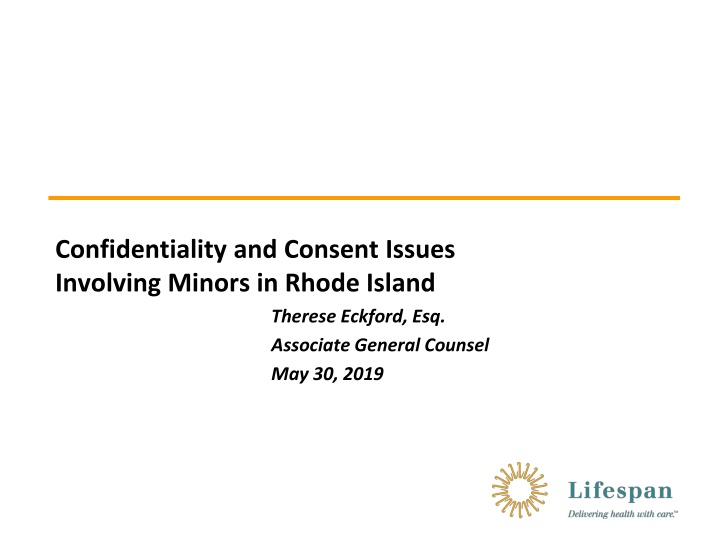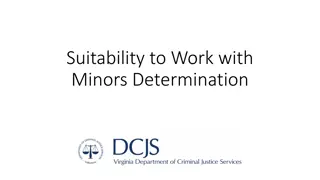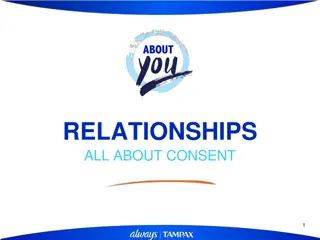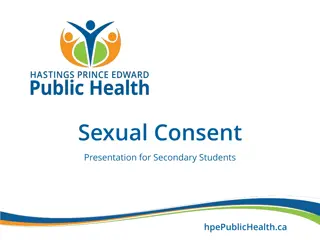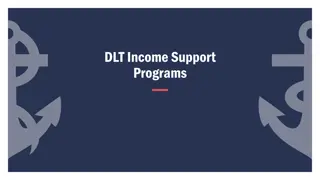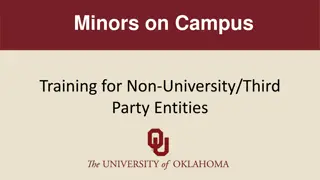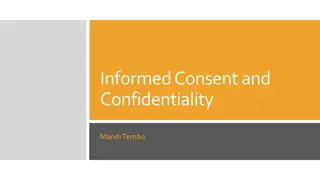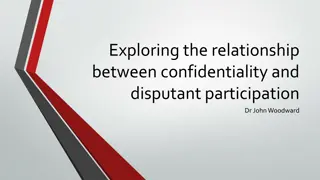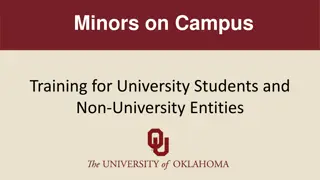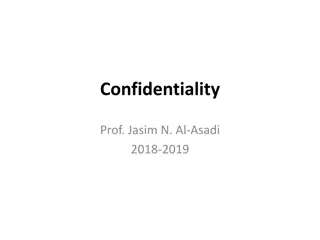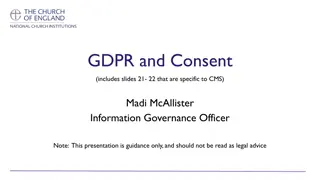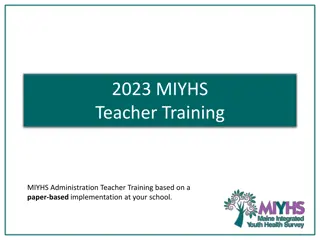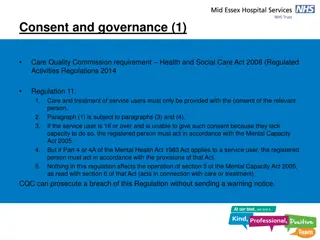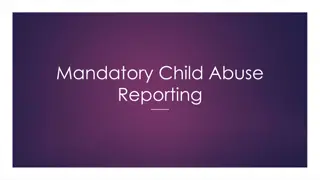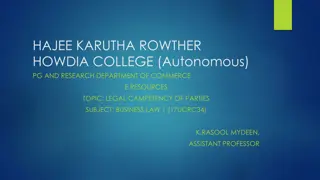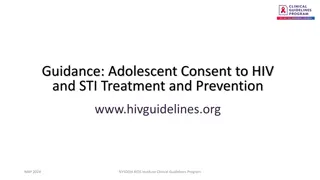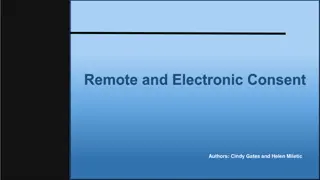Consent and Confidentiality Issues Regarding Minors in Rhode Island Legal Landscape
The legal landscape in Rhode Island pertaining to minors' rights involves a delicate balance between traditional views and the need for minors to make their own decisions in certain situations. Rhode Island's age of consent is 18, with special provisions for minors aged 16 and 17. The impact of revised consent laws grants minors aged 16 and older the ability to make various medical decisions, particularly related to sexual health. Providers face dilemmas in determining when to involve parents or guardians, ensuring confidentiality, and assessing the minor's best interests and maturity level. Substance abuse treatment for minors is governed by state and federal laws.
Download Presentation

Please find below an Image/Link to download the presentation.
The content on the website is provided AS IS for your information and personal use only. It may not be sold, licensed, or shared on other websites without obtaining consent from the author.If you encounter any issues during the download, it is possible that the publisher has removed the file from their server.
You are allowed to download the files provided on this website for personal or commercial use, subject to the condition that they are used lawfully. All files are the property of their respective owners.
The content on the website is provided AS IS for your information and personal use only. It may not be sold, licensed, or shared on other websites without obtaining consent from the author.
E N D
Presentation Transcript
Confidentiality and Consent Issues Involving Minors in Rhode Island Therese Eckford, Esq. Associate General Counsel May 30, 2019
Legal Landscape The law struggles to balance traditional view that minors can t understand treatment options and make informed decisions with the reality that sometimes minors need to make their own decisions Every state is different and laws are scattered In Rhode Island, laws pertaining to rights of minors found in state confidentiality statute, criminal statutes (regarding sexual assault), mandatory reporting laws, and various laws regulating consent to treatment Rhode Island Age of Consent: Age 18 Age of majority and decision-making generally allowed Age 16 Revised statute allows, but does not require, many types of medical decision-making 2 2
Impact of Revised Consent Law Facts Minors who are 16 and 17 or married have the ability to make a wide range of medical decisions Great freedom to make decisions related to sexual health (but no abortion or sterilization) Minors of any age can seek pregnancy related care Questions When should the provider involve the parent/guardian? Is independent decision-making for people 16 and older the presumption? Exceptions? 4 4
Dilemmas Posed by New Law Do providers have discretion to involve parent/guardian? A fact sensitive analysis involving clinical judgement is required. When is the minor guaranteed confidentiality? What is in the minor s best interest? Does the minor want to make an independent decision? How adamant? How mature is the minor? OK repeatedly to ask minor to involve parent/guardian? How do you preserve the healthiest treatment relationship? Does the condition require the ongoing support of an adult? Risk analysis: danger to self or others? What if one party provides consent and the other disagrees? 5 5
Substance Abuse Treatment for Minors Governed by state and federal law RIGL Chapter 14-5: Treatment of Juveniles for Chemical Dependency Purpose of law is to encourage juveniles who are chemically dependent to seek treatment for substance abuse Parental consent preferred However, child who refuses permission to contact parents is allowed to consent to non-invasive, non-custodial treatment Provider must make repeated attempts to get permission to contact parents Parental consent required for custodial or invasive care No mention of age of minor Who pays for the care if no parental consent? 6 6
Opioid Addiction and Overdose What can you tell the parents? Generally, the person who consents is owed confidentiality HIPAA Guidance October 2017 Clarified that HIPAA allows providers to exercise professional judgement to share medical information related to opioid overdose on basis of patient s incapacity and/or to avoid serious and imminent threat to patient s health or safety State confidentiality law ( RIGL 5-37.3-4) has not caught up, but bill pending that would amend state law to allow disclosures of this type Disclosures must relate to the overdose, not general drug use For minors, can you err on side of telling parents? 7 7
STDs; Abortion; Behavioral Health STDs Minors may consent to testing examination and/or treatment for any reportable communicable disease ( RIGL 23-8-1.1) No requirement to notify parents Includes HIV and AIDS Abortion Consent of both the minor and at least one parent is required; or, a family court judge can decide ( RIGL 23-4.7-6) Behavioral Health Is the facility licensed by the Rhode Island Department of Behavioral Healthcare, Developmental Disabilities and Hospitals (BHDDH)? If no, treatment may be general healthcare and 16+ rule could apply If Mental Health Law applies, parental consent required for minors under 18 ( RIGL 40.1-5-26) 8 8
